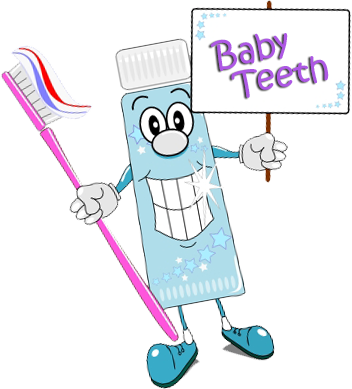These “Baby teeth” are necessary for a child to chew and speak. But baby teeth serve another
Important purpose they keep room for the child’s future permanent teeth.
The first baby teeth, known as primary teeth, appear as early as 3-4 months of age, but really start to come out through the gums between the ages of 6 months to one year of age. The timing all depends, and which ones come out first all depends, too, but all 20 baby teeth will usually erupt by the age of three. And those baby teeth are important, even if you can’t see them and even if they eventually fall out and are replaced with permanent adult teeth.
What is the important of the primary teeth?
-1) For good nutrition through proper chewing. A baby’s teeth are of huge importance regarding health and wellness. The process of chewing helps to break food down into digestible sizes. A cavity free mouth often means that it’s easier to enjoy healthy foods without pain or discomfort
-2) providing space for the permanent: when primary (milk) teeth are lost early, it is important to maintain the space for the permanent teeth. The eruption of the 6-year (first) permanent and the 12-year (second) permanent molars can cause shifting and movement of the teeth. Thus, the space maintainer can reduce overcrowding.
-3) Permitting normal development of the jaw bones and muscles. Like any muscle, your baby’s face and jaw muscles need exercise to help them develop; healthy primary teeth allow for proper chewing to build these muscles. “Without well-developed jaw muscles, your baby’s jawbones may not develop properly.”
-4) Proper development of speech. Learning to speak clearly is crucial for social, and emotional development. The proper positioning of primary teeth facilitates correct syllable pronunciation and prevents the tongue from straying during speech formation.
Pearl Dental Care recommends scheduling your baby’s first dental visit around his or her first birthday. Starting dental visits early can prevent costly dental care later.


